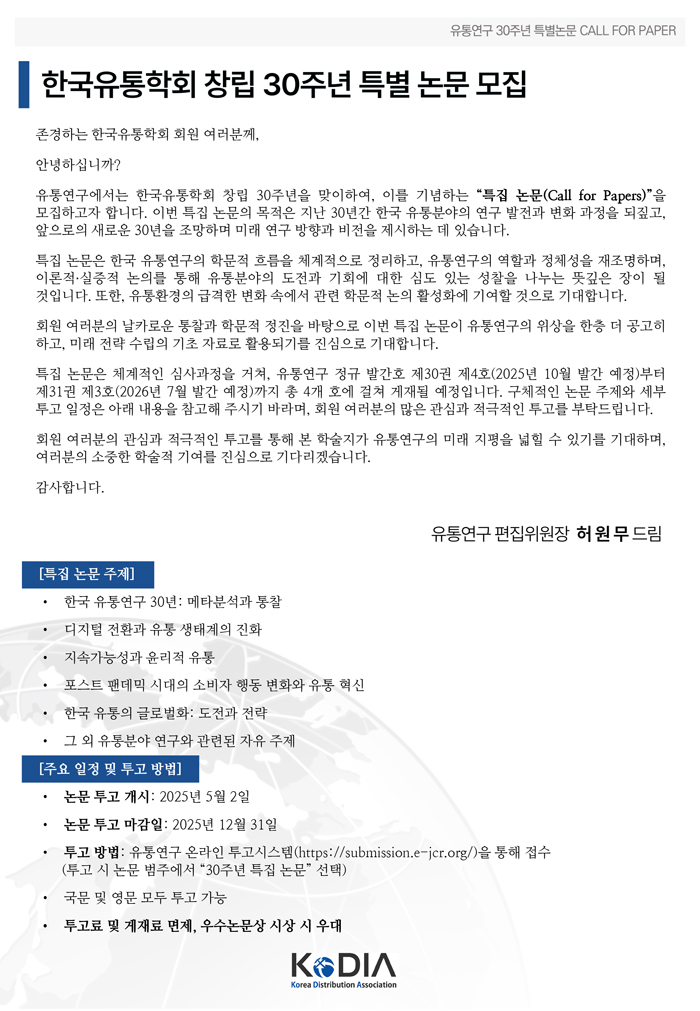가맹본부의 재무성과주장에 대한 규제 : 핵심쟁점과 개선방향
Received: Feb 09, 2014; Revised: Apr 07, 2014; Revised: Nov 15, 2014; Accepted: Dec 06, 2014
Published Online: Jan 31, 2015
초록
예상매출액을 포함한 재무성과는 가맹희망자나 가맹본부에게 매우 중요한 정보다. 만약 가맹본부가 허위·과장된 재무성과정보를 제공한다면 가맹희망자의 투자손실로 이어질 가능성이 높고 따라서 가 맹사업법은 이러한 행위를 불법행위로 엄격히 금지하고 있다. 그럼에도 불구하고 허위·과장정보의 제 공을 이유로 가맹점이 가맹본부에 대해 계약해지와 가맹금 반환을 요구하는 분쟁이 계속되고 있다.
2013년 8월 개정된 가맹사업법은 일정 규모 이상의 가맹본부로 하여금 예상매출액을 산정하여 가 맹희망자와 가맹점사업자에게 문서로 제공하는 것을 의무화하고 있다. 가맹점사업자와 시민단체는 예 상매출액 산정서 제공의 의무화 등이 포함된 개정법의 통과를 환영하고 있지만 가맹본부를 중심으 로 한 업계의 반발이 크다.
본 논문은 개정법에서의 가맹본부의 예상매출액 산정서 제공 의무화를 포함하여 재무성과주장에 대한 규제가 가지고 있는 문제점을 분석하고 있다. 이를 위해 미국 FTC의 Franchise Rule에서 재무 성과주장에 대한 규제가 어떻게 이루어지고 있는가를 소개하고 있고, 핵심 쟁점인 재무성과주장의 강 제와 면책조항의 활용 제한을 판례와 함께 소개하고 있으며, 이를 개정법과 비교하여 몇 가지 제언을 하고 있다. 이는 향후 정부당국이 보다 합리적이고 수용가능한 방향으로 가맹사업법을 운용하는 데 기여할 것으로 기대된다.
ABSTRACT
Franchise performance information including potential sales, income, or profits is very important for both prospective franchisees and franchisors. Prospective franchisees want financial performance information when deciding whether or not to purchase a particular franchise. Franchisors use financial performance information as a powerful selling tool for recruiting prospective franchisees who need for information about the possible financial results of their investment.
Financial performance representations(FPR) that state fraudulent or exaggerated information result in franchisees’ loss of their investments. In Korea, the number of disputes in which franchisees ask for contract termination due to the franchisor’s provision of fraudulent or exaggerated information has increased continuously during the past decade. For this reason, the Korea Fair Trade Commission(KFTC) recently prohibited the use of those deceptive and misleading practices conducted by the franchisors.
The Franchise Transaction Law amended on August 2013 requires Korean franchisors with more than 100 franchisees or franchisors who are not classified as small and medium companies to provide prospective or current franchisees with the Sales Projection Document(SPD). Most franchisors and their representatives such as Korea Franchise Association are reluctant to comply with the Amended Law whereas franchisees and civil right groups are welcoming it.
This study addresses the problems of KFTC’s current regulations on financial performance representations including mandatory provision of SPD, a form of FPR. For this, the authors review the history of FTC Franchise Rule regulations on FPR and contrast the opposing arguments related to the mandatory disclosure of FPR. The debate concerning the mandatory disclosure of FPR falls into one fundamental issue: Should the franchisor make a financial performance representation or should the prospective franchisee gather relevant information for their own success.
With respect to the adequacy of the mandatory disclosure of FPR, this study also discusses the franchisor‘s use of integration clauses. The FTC Rule prohibits franchisors from disclaiming liability for statements authorized by franchisors in their disclosure documents. By prohibiting this practice, FTC preserves the integrity of the material information in the disclosure document, thus preventing deception. It is still controversial whether franchisors can use an integration clause that purports to disclaim their legal responsibilities.
Reviewing the benefits and the costs of mandatory disclosure of FPR and the judicial decisions regarding the franchisor’s use of integration clause, the authors suggest several directions for further development in governmental regulations on FPR. These suggestions would contribute to the development of fair and undeceptive practices in franchise industry by enhancing the reasonableness of the current regulation on FPR and by lessening the franchisors’ reluctance to comply with the law.







